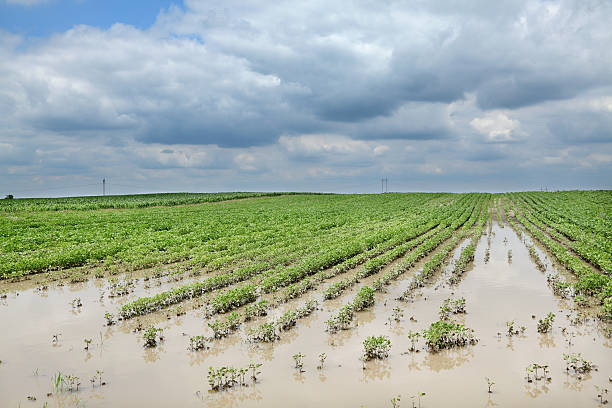Transformative Disaster Risk Reduction: Building Climate Resilience in Asia-Pacific
In December 2024, Vanuatu endured a catastrophic 7.4 magnitude earthquake, claiming 14 lives, injuring over 200 people, and displacing thousands. This devastating event underscores the Pacific Island nations' vulnerability to compounded natural disasters, where earthquakes intersect with climate-induced hazards like rising sea levels, cyclones, and coastal erosion.
The Asia-Pacific region faces mounting risks as the impacts of climate change intensify. From the icy Third Pole to low-lying Pacific islands, every subregion is grappling with unique vulnerabilities. Recognizing these challenges, ESCAP’s 2024 Asia-Pacific Subregional Disaster Reports provide tailored insights to address the region’s diverse climate risks and opportunities for resilience.
Escalating Risks Demand Transformative Adaptation
The reports highlight that incremental approaches are inadequate. For instance, East and North-East Asia has suffered $2 trillion in economic losses and half a million fatalities over five decades. Under 2°C warming, these regions face worsening floods, droughts, and heatwaves, threatening urban centers and critical systems.
In Southeast Asia, nearly the entire population is at risk of flooding under 2°C warming, with the Mekong River Basin becoming a persistent multi-hazard hotspot. Similarly, Pacific island nations face rising seas and stronger cyclones, eroding coastlines and displacing communities. Meanwhile, South and South-West Asia face glacial melt from the Third Pole, jeopardizing water security for 1.3 billion people.
The economic toll is staggering. East and North-East Asia’s average annual losses (AAL) of $510 billion could rise under warming scenarios, while small island states like Vanuatu face losses exceeding 21% of GDP. Yet, ESCAP emphasizes that investing in transformative adaptation—resilient infrastructure, integrated climate policies, and early warning systems—can mitigate risks and safeguard livelihoods.
Early Warning Systems: A Lifeline for Resilience
Early warning systems (EWS) play a pivotal role in disaster risk reduction. By providing timely, actionable information, EWS can save lives and significantly reduce economic losses. For instance, effective EWS could save Southeast Asia $8.7 to $13.1 billion annually and prevent $4 to $6 billion in damages in the Pacific.
To maximize effectiveness, EWS must encompass risk knowledge, detection, dissemination of warnings, and preparedness. Innovations like AI-powered risk assessments in China and impact-based forecasting in South Asia exemplify transformative advancements. These systems not only protect lives but also enhance economic stability by reducing recovery costs.
Collaborative Solutions for Transboundary Risks
Asia-Pacific’s interconnected risks require transboundary cooperation:
- Ocean-Based Hazards: Mangrove restoration and coastal management address sea-level rise and cyclones.
- Inland Water Stress: Water-sharing agreements in the Aral Sea Basin and Third Pole Climate Forum tackle droughts and glacial melt.
- Desertification: Afforestation in China, Mongolia, and Iran mitigates sandstorms and land degradation.
Collaborative frameworks like the Pacific Resilience Partnership and Mekong Basin initiatives foster scalable, nature-based solutions, protecting vulnerable communities and ecosystems.
A Call for Transformative Change
ESCAP’s reports emphasize the urgency of embedding climate resilience across all sectors—from agriculture to urban planning. Aligning with global frameworks like the Sendai Framework and Paris Agreement, Asia-Pacific nations can lead the charge toward a sustainable future. The tools and knowledge are available; the time to act is now.
Read More






 Wednesday, 25-02-26
Wednesday, 25-02-26







